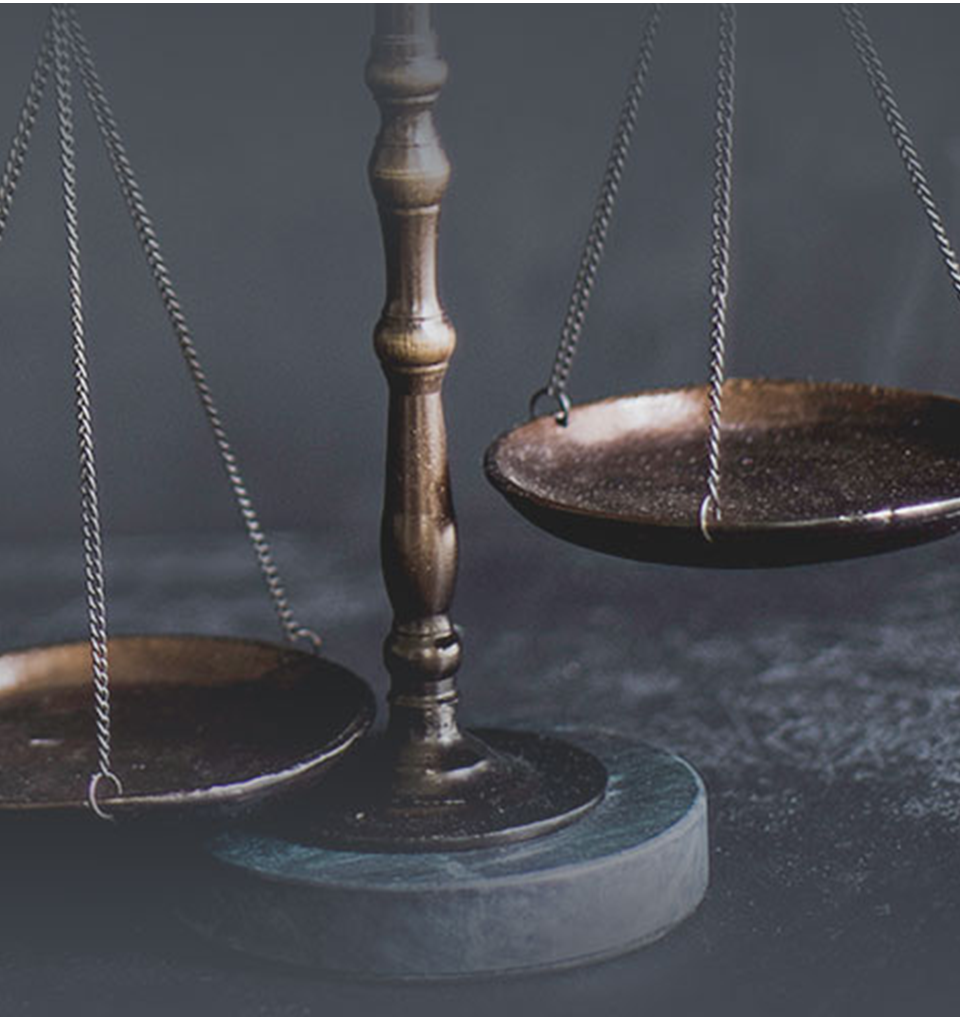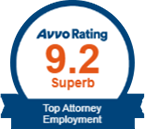FIGHTING FOR YOU!
NY & NJ Employment & Education Equity Attorney: Discrimination, Harassment, Retaliation, Unpaid Wages & Wrongful Termination.

Home » Faq
Free Initial Consultation
We Hear You. Trust us to take care of you and your case.
Testimonials
Hear what our Clients
have to say

Sabri

After receiving an unexpected job elimination I reached out to Laurie’s firm. I told Laurie what I wanted, and she was able to successfully negotiate on my behalf for a better-than-offered agreement. While this was a very stressful time for me, she really kept me informed on the progress of the case. I would recommend Laurie Morrison to anyone who needs a resolution of issues involving employment and retirement benefits.

Anonymous

“Mrs. Morrison was consistent to say the least, which is a good thing as at times I was overwhelmed with the idea of battling such a large company. She was dutiful in her ability to be reached via all modes of communication. In the end my case was settled for what I believe to be a reasonable monetary amount. I would recommend Mrs. Morrison without hesitation.”

Anonymous

“Laurie represented me remarkably well and was there for me every step of the way through the successful resolution of my case. Laurie was highly responsive and kept me apprised throughout the process. She is truly the individual you want advocating for you. It was a true honor and privilege to work with such an outstanding, determined, and caring attorney! Highly recommend!”

Anonymous

“Highly Recommended Attorney. You can not go wrong when you have a strong, hard working, and dedicated lawyer on your side as Mrs. Morrison. She won my case. Her positive energy and expertise makes you in a win win situation.”

Anonymous

“Laurie is very knowledgeable about employment law and thoroughly informed me of my rights, responsibility and the limitations of the law. I hired her after speaking four attorneys because she listened the best, was was willing to share her knowledge and was tenacious. Laurie certainly is tough but certainly not without compassion and care.”

Denis

“Laurie is an amazing attorney! She is a true advocate for people’s civil rights. Laurie fought for my right as a woman to be treated equally, fairly, and justly in the workplace. I cannot thank her enough!”

Dominick
New York City

“She’s a great lawyer and got us results, can’t thank her enough! Would and have recommended her to other people!”

Anonymous

“Laurie helped me bring suit against a Fortune 500 company on a discrimination case. Her knowledge, experience and empathy was something I will never forget. She sticks up for the little guy! I highly recommend Laurie.”

Denis
New York City

“I highly recommend Laurie. She is a very knowledgeable, thorough, and very thoughtful attorney. She prepared several employment documents for me, including an employment contract proposal, a non-solicitation and confidentiality agreement, and an independent contractor agreement.”

Anonymous

“I could tell from our first conversation she truly cared and was so sincere I could hear the humanity in her voice. If you are considering Laurie as a Lawyer I would recommended her to anyone who is in need of an honest,dedicated professional. In less than six months,Laurie settled my case and I cannot thank her enough.”

James
New Jersey

“Laurie is a very talented and savvy attorney. Most lawyers forget that they are dealing with other humans and remove the “people approach” when dealing with their clients. Laurie does the exact opposite. She is accessible, reliable, and she doesn’t shy away from other strong-armed attorneys. Laurie is your attorney! She is very good – she won my case!”

Edward
New York City

“Laurie was excellent at guiding me to understand what was relevant and material and what was not. She kept me informed along the way and was also wonderfully supportive with respect to my health and legal challenges. I’d hire her again and fully recommend her to anyone who needs legal representation.”

Anonymous

“If you are considering Laurie as a Lawyer I would recommended her to anyone who is in need of an honest,dedicated professional. In less than six months,Laurie settled my case and I cannot thank her enough.”

Greg
New Jersey

“Perfect balance of knowledge, compassion and professionalism” – “I have had a few lawyers represent me in various situations but Laurie stands out as someone who really got involved and understood all the intricacies of my case. She was always quick to respond to calls/emails. I highly recommend this lawyer.”

Marvela
New York City

“Laurie provided me superb, factual and practical legal advice that allowed me to make a life changing decision about my career. I am financially, emotionally and professionally in a better place. I would rehire her over and over again.”

Arlene
New York City

“Laurie did an awesome job in getting a resolution for my case. She was the silver lining around the dark cloud for me. Laurie is a professional and I had total confidence in her abilities to represent me. I would totally use her again and highly recommend her services.”
Testimonials
Hear what our Clients
have to say

Sabri

After receiving an unexpected job elimination I reached out to Laurie’s firm. I told Laurie what I wanted, and she was able to successfully negotiate on my behalf for a better-than-offered agreement. While this was a very stressful time for me, she really kept me informed on the progress of the case. I would recommend Laurie Morrison to anyone who needs a resolution of issues involving employment and retirement benefits.

Anonymous

“Mrs. Morrison was consistent to say the least, which is a good thing as at times I was overwhelmed with the idea of battling such a large company. She was dutiful in her ability to be reached via all modes of communication. In the end my case was settled for what I believe to be a reasonable monetary amount. I would recommend Mrs. Morrison without hesitation.”

Anonymous

“Laurie represented me remarkably well and was there for me every step of the way through the successful resolution of my case. Laurie was highly responsive and kept me apprised throughout the process. She is truly the individual you want advocating for you. It was a true honor and privilege to work with such an outstanding, determined, and caring attorney! Highly recommend!”

Anonymous

“Highly Recommended Attorney. You can not go wrong when you have a strong, hard working, and dedicated lawyer on your side as Mrs. Morrison. She won my case. Her positive energy and expertise makes you in a win win situation.”

Anonymous

“Laurie is very knowledgeable about employment law and thoroughly informed me of my rights, responsibility and the limitations of the law. I hired her after speaking four attorneys because she listened the best, was was willing to share her knowledge and was tenacious. Laurie certainly is tough but certainly not without compassion and care.”

Denis

“Laurie is an amazing attorney! She is a true advocate for people’s civil rights. Laurie fought for my right as a woman to be treated equally, fairly, and justly in the workplace. I cannot thank her enough!”

Dominick
New York City

“She’s a great lawyer and got us results, can’t thank her enough! Would and have recommended her to other people!”

Anonymous

“Laurie helped me bring suit against a Fortune 500 company on a discrimination case. Her knowledge, experience and empathy was something I will never forget. She sticks up for the little guy! I highly recommend Laurie.”

Denis
New York City

“I highly recommend Laurie. She is a very knowledgeable, thorough, and very thoughtful attorney. She prepared several employment documents for me, including an employment contract proposal, a non-solicitation and confidentiality agreement, and an independent contractor agreement.”

Anonymous

“I could tell from our first conversation she truly cared and was so sincere I could hear the humanity in her voice. If you are considering Laurie as a Lawyer I would recommended her to anyone who is in need of an honest,dedicated professional. In less than six months,Laurie settled my case and I cannot thank her enough.”

James
New Jersey

“Laurie is a very talented and savvy attorney. Most lawyers forget that they are dealing with other humans and remove the “people approach” when dealing with their clients. Laurie does the exact opposite. She is accessible, reliable, and she doesn’t shy away from other strong-armed attorneys. Laurie is your attorney! She is very good – she won my case!”

Edward
New York City

“Laurie was excellent at guiding me to understand what was relevant and material and what was not. She kept me informed along the way and was also wonderfully supportive with respect to my health and legal challenges. I’d hire her again and fully recommend her to anyone who needs legal representation.”

Anonymous

“If you are considering Laurie as a Lawyer I would recommended her to anyone who is in need of an honest,dedicated professional. In less than six months,Laurie settled my case and I cannot thank her enough.”

Greg
New Jersey

“Perfect balance of knowledge, compassion and professionalism” – “I have had a few lawyers represent me in various situations but Laurie stands out as someone who really got involved and understood all the intricacies of my case. She was always quick to respond to calls/emails. I highly recommend this lawyer.”

Marvela
New York City

“Laurie provided me superb, factual and practical legal advice that allowed me to make a life changing decision about my career. I am financially, emotionally and professionally in a better place. I would rehire her over and over again.”

Arlene
New York City

“Laurie did an awesome job in getting a resolution for my case. She was the silver lining around the dark cloud for me. Laurie is a professional and I had total confidence in her abilities to represent me. I would totally use her again and highly recommend her services.”

Get In Touch
* Required Fields
Contact Us
New York, NY, 10007
Montclair, NJ 07042
Ridgewood, NJ 07450
- Home
- Attorney
- Practice Areas
- Age Discrimination
- Disability Discrimination
- Education / School Equity
- Employment Discrimination
- Family & Medical Leave Act (FMLA)
- Pregnancy Discrimination
- Race & Ethnicity Discrimination
- Religious Discrimination
- Retaliation
- Sex / Gender Discrimination
- Sexual Harassment
- Sexual Orientation Discrimination
- Unpaid Wages
- Wrongful Termination
- Testimonials
- Resources


